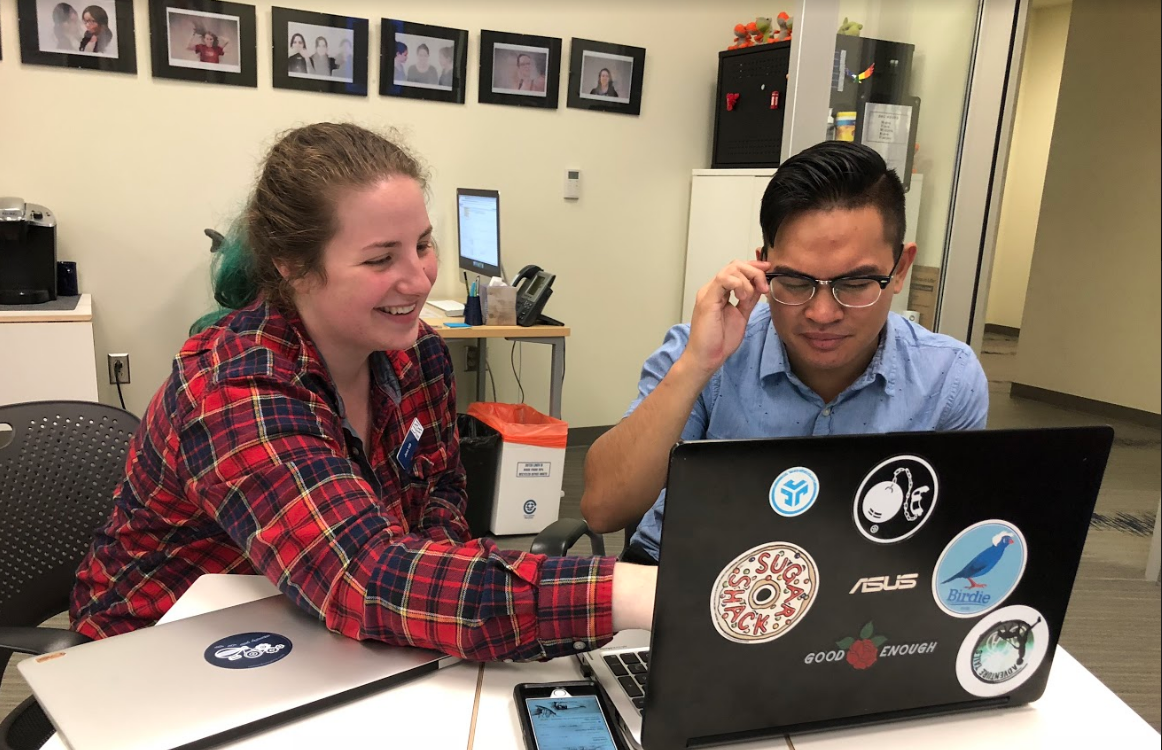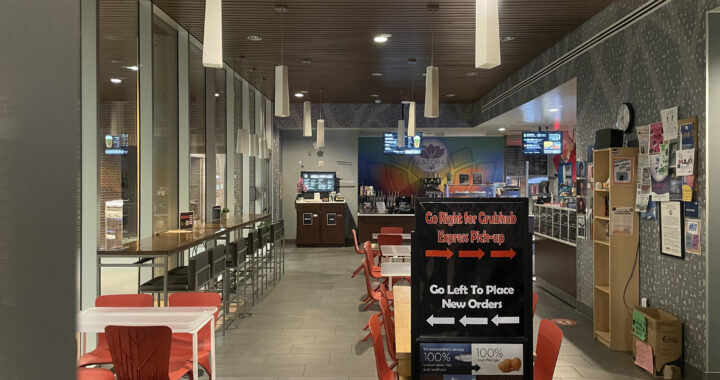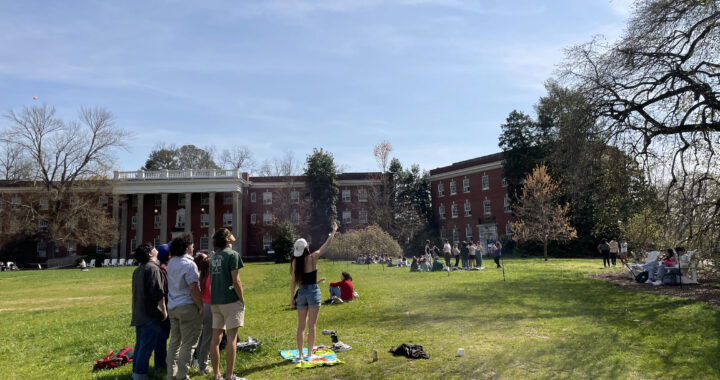Domain Fellows create websites and discuss impact of web
3 min read
Zanab Farooq | The Blue & Gray Press
By CAMERON ASHLEY
Staff Writer
Recently, the applications for UMW Domain Fellows closed and a new group of applicants became the next group of students to participate in the second year of this program, in which students create their own projects using UMW’s Domain of One’s Own.
Domain of One’s Own is a project that was launched in 2013. With this project, students and faculty at Mary Washington have the ability to create their own free domain with which to do whatever they want. They can choose to keep the domain or do nothing with it after they finish school. This entire project was pioneered at Mary Washington. Universities like Oklahoma University, Brigham Young University and Coventry University in the UK have all taken the idea of Domain of One’s Own and changed it to fit their own needs.
Domain Fellows is a project that was launched a year ago and is a program that is designed for students to use Domain of One’s Own in a way that they had maybe not thought before.
“I wanted students to start thinking about Domain of One’s Own outside the classroom and to really start realizing what Domain of One’s Own afforded them could be a powerful thing in their personal lives and in their future and in their understanding of themselves on the web.” said Martha Burtis, Director of Digital Knowledge Center and the mind behind Domain Fellows.
For classes, students may simply post on their websites the projects that they are doing. This is not the idea of Domain Fellows. In this program, the students create projects on their domains but also partake in important discussions on how the web works and how it affects their lives.
“We just think the web is a place where we can share recipes on Facebook and post pictures of our puppies, and it is, but it is so much more than that and it’s shaping us and our culture in really critical ways. That is a conversation that we should be having with students because you’re that ones that have to go out and forge this territory for your futures.” Burtis said.
The main part of Domain Fellows is when students “work on a project that is really personally and intrinsically valuable to them and doesn’t have anything to do with a class or their major. It is just something that they want to do and explore on their domain,” said Burtis.
One student, Jennifer Hill, who participated in the inaugural year of Domain Fellows, started out her project with a photography website but it soon morphed into another idea entirely. She soon focused on making her website unique to her and create in-depth posts, using digital skills she had acquired.
Hill applied for several reasons. “Being a Domain Fellow also meant working closely with Martha Burtis and picking her brain about the web and web culture,” said Hill. “I wanted to apply as Martha Burtis essentially invests $500 into your project. This money can be used for website tools, equipment, and any other needs. Investments like that are hard to come by and so I was eager at the prospect of obtaining and using this money for my website.”
Domain Fellows receive a stipend of $500 for their work on their websites. Students work on their project for almost the whole school year. Hill said, “The work related to one’s project is self-directed, meaning you set your own work and deadlines. Consequently, Domain Fellows isn’t like another class, but like a think tank with projects that you manage on your own with Martha’s help.”
Finally, when students have completed their Domain Fellows work for the year, they become Domain Ambassadors. A Domain Ambassador is essentially someone who helps promote Domain of One’s Own on campus. As Hill said, “this can be through advertising your project to friends and telling them about the Domain Fellows Program. One can also act as a Domain Ambassador when organizing and attending Club Carnival.” Another way these Domain Ambassadors promote Domain of One’s Own is through attending and organizing Domain Days, where students can go to the HCC and learn more about Domain of One’s Own and set up their own domain.











